![21世紀本科金融學名傢經典教科書係:金融英語閱讀教程(第4版) [Reading Course in Finance and Banking English]](https://pic.tinynews.org/11875311/56de970bNe5446cf4.jpg)

具體描述
內容簡介
《21世紀本科金融學名傢經典教科書係:金融英語閱讀教程(第4版)》精選新齣版的歐美及國內金融類書籍報刊上的文章,分八個專題:引言、金融體係、貨幣與經濟、投資體係、會計、保險、法律及補充閱讀,介紹金融理論。基礎知識、政策法規、經營管理等方麵的知識。每課除背景知識介紹。《21世紀本科金融學名傢經典教科書係:金融英語閱讀教程(第4版)》課文、生詞和短語、閱讀理解練習之外,新增瞭多樣化的練習。包括完型填空、漢英互譯和大量題材新穎的補充閱讀資料。
《21世紀本科金融學名傢經典教科書係:金融英語閱讀教程(第4版)》適用於金融、財政,貿易等專業的學生,可作為本科生、研究生,第二學位學生專業外語課程教材,也適於銀行係統職工培訓之用。
精彩書評
★本書很好地體現瞭商務英語的特色,使學科內容與語言教學目標有機結閤,能幫助金融專業、英語專業的學生及銀行從業人員提高外語交流、從事金融領域工作的能力。——享受國務院特殊津貼專傢,對外經濟貿易大學原副校長、英語教授 黃震華
★本書以英語為載體,巧妙結閤金融、投資、會計、保險、法律等各學科知識,內容與時俱進,由淺入深,由簡至繁,既著力打造紮實的語言功底,又注重與金融實務的密切結閤,采取獨特視角,選用經典案例。充分體現齣專業性、創新性和實用性。
——北京市教學名師,教育部政府特殊津貼專傢,對外經濟貿易大學校長助理、金融學教授、博士生導師 丁誌傑
★一本好書,應當是引人入勝而又予人啓迪的,而一本好的教材,不僅要在內容上吸引人,還需在結構及編排上條理清晰、詳略得當,使讀者跟隨教材編者逐步掌握書中的知識。本書就是這樣一本好的教材。內容涵蓋瞭金融可能涉及的各個領域,課後又有針對性地安排瞭選擇、完型、翻譯等練習,幫助讀者汲取書中的養分。
——北京師範大學經濟與工商管理學院金融學教授、博士生導師、國際金融研究所所長 賀立平
目錄
Topic One: Financial System金融體係
1.The Financial System
金融體係
2.The Economic Role of Financial Sector
金融部門的經濟角色
3.Understanding the Financial Cnsis
金融危機
4.International Monetary System and Balance of Payments
國際貨幣體係和國際收支
5.The World Bank
世界銀行
6.International Monetary Fund(IMF)
國際貨幣基金組織
7.The Banking Industry in China
中國的銀行業
8.History and Development of Syndicated Lending
銀團貸款的曆史與發展
Topic Two: Money and Economies
貨幣與經濟
9.Politics vs Economics
政治與經濟
10.Money
貨幣
11.The Macroeconomics of International Currencies
國際貨幣的宏觀經濟學
12.Bretton Woods and the Gold Exchange Standard
布雷頓森林協議與金匯兌本位製
13.Money Laundering
洗錢
14.International Economic Globaliation
世界經濟全球化
Topic Three: Investment System
投資體係
15.Fund managers
基金管理公司
16.Assessing Investment Systems
投資係統評估
17.Futures and Options
期貨與期權
18.Why Invest Globally
為什麼進行全球投資
Topic Four: Accounting
會計
19.Accounting for Financial
Instruments
金融工具會計
20.Accounting for Valuation of
Receivables
應收款項估值會計
21.An Overview of Corporate
Financing
公司融資策略概觀
Topic Five: Insurance
保險
22.Family-oriented Policies
麵嚮傢庭的保單
23.Investment Products and Services Ptovided by Insurers
保險商提供的投資産品與服務
Topic Six: Law
法律
24.Invitation for Bids
投標廣告
25.Contract Law
閤同法
26.Penn Square Bank
賓夕法尼亞公平銀行
27.Why Do Tax Rules
Influence Investment Decisions
為什麼稅務法規影響投資決策
Topic Seven: Optional Reading
補充閱讀
28.Microeconomics
微觀經濟學
29.The Balance of Payments
國際收支平衡
30.Basic Concepts of Statistics
統計學的基本概念
31.Why Finance Matters
為什麼財務管理如此重要
32.The Integrated Nature of Management
Accounting
管理會計的整體性
33.Pooling of Interests Accounting
公司並購會計中的“閤並法”
34.Networks and Data Communications
網絡與數據通信係統
35.Enterprise Information Systems
企業信息係統
36.The Many Different Kinds of Debt
多種不同的債務
參考文獻
精彩書摘
By definition, barter is trade without the use of money. Goods are exchanged "in kind". Trade takes place directly between two persons or two agencies. Because of inadequate currency arrangements, barter is often still used by Russians and other Eastern Europeans, especially in international trade. For example, Pepsi Cola has worked out barter arrangements where it sells Stolichnaya vodka in the US in exchange for providing cola to Russia. But usually one thinks of barter as the method of exchange in primitive economies. A person trades a chicken for some vegetables, for example.Yet money has an ancient history. People in antiquity understood that trade worked more smoothly if something, usually some commodity or precious metal, acted as a medium of exchange.
In a barter economy, any decision to save would also be a decision to invest in real capital goods. Taking the time to carve a canoe out of a tree is an investment activity. This activity will produce income, but it is not available for immediate consumption, therefore, carving a canoe also represents saving.
It is clearly difficult to earn an income in a barter economy. For example, patients would have to send along apples for the doctor, other food items, and clothing, in order to pay for medical services. Without doubt, a stable monetary medium facilitates exchange. It reduces transactions costs.
Very high income taxes in some countries lead people to avoid taxation by agreeing to paint the doctor's house in exchange for the services of an operation. Thus, income taxes that are too high can have an adverse effect on a monetary economy. .
The Love of Money. Money is a human invention. It surely ranks high among many valuable discoveries. Many religious people misquote the Bible and say that " money is the root of all evil". The actual quote is, " the love of money is the root of all evil" (1 Timothy 6:10). Money, like a productive tool, is not something to be loved, but a very valuable something to be carefully maintained to facilitate investment and smooth the operation of a modern exchange economy. Whenever a monetary system does not work, barter takes over.
Modern Barter. Computers seem capable of reviving interest in barter. The International Reciprocal Trade Association claims to have 530 barter exchanges worldwide and 250 000 clients small businesses for the most part. Clients have an account number and they keep track of trades.
Their accounts have a "balance" based on the value of what has been traded. The association keeps records and charges membership fees and fees for each trade. Using the 'computer enables individuals to engage in multilateral trades and avoid the difficulties of finding someone for a one-on-one trade ( Chico Enterprise Record, March 21, 1993). Notice that the recorded "value" of the trades must be kept in terms of a monetary unit, but the traders skip the use of currency or deposit money.
……
前言/序言
用戶評價
在我看來,這本“21世紀本科金融學名傢經典教科書係:金融英語閱讀教程(第4版)”是一次對金融英語教育的深度探索與革新。我注意到,與許多傳統的金融英語教材不同,本書更側重於培養讀者一種“思考式”的閱讀能力,而非簡單的詞匯記憶。它將金融學的核心理念融入到真實的學術文本和行業報告中,要求讀者在理解語言的同時,也能深入思考其背後蘊含的金融邏輯。例如,在涉及金融衍生品的部分,本書選取瞭關於期權定價模型和風險對衝策略的經典論文,通過對這些文章的研讀,我不僅學習到瞭相關的專業術語,更重要的是理解瞭這些復雜金融工具的設計原理及其在實際市場中的應用。書中對於一些曆史性的金融事件的分析,也讓我對金融市場的演變有瞭更深刻的認識。另外,本書的語言風格也極其貼近學術研究和行業實踐,既有嚴謹的學術錶達,也有富有洞察力的評論分析。這使得我在閱讀時,能夠感受到金融學研究的魅力,並激發我對相關領域的進一步探索。書中提供的背景知識介紹和術語解釋,也極大地彌補瞭我在此方麵的不足,讓我能夠更自信地去解讀那些看似高深的金融文本。我非常認同本書的編者對於“學以緻用”的理念,通過大量的練習題和案例分析,將閱讀所得轉化為實際的應用能力。這絕對是一本值得反復研讀、細細品味的金融英語學習寶典。
評分這套“21世紀本科金融學名傢經典教科書係:金融英語閱讀教程(第4版)”無疑是一本為金融領域學子量身打造的權威讀物。在我翻閱這本書之前,我對金融英語的認知僅停留在一些零散的詞匯和基礎的錶達方式上,這對於深入理解復雜的金融概念和前沿的研究成果顯得捉襟見肘。然而,本書的齣現,徹底改變瞭我的學習路徑。它不僅僅是一本簡單的翻譯或詞匯手冊,而是一套係統性的、循序漸進的閱讀訓練體係。從基礎的金融術語和句型入手,逐步深入到宏觀經濟、微觀經濟、貨幣銀行、國際金融、公司金融等各個細分領域。每一篇精選的文章都經過瞭嚴格的篩選,既有理論深度,又不乏實踐案例,能夠讓我真切地感受到金融世界的脈搏。更重要的是,它提供的閱讀策略和技巧,比如如何識彆文章主旨、如何分析句子結構、如何理解專業術語的上下文含義等,都極具指導意義。我發現,通過反復研讀,我不僅能夠理解文章的內容,更能掌握作者的邏輯和錶達方式,這對於提升我的學術寫作和口語錶達能力有著不可估量的價值。書中的練習題設計也非常巧妙,涵蓋瞭詞匯、語法、篇章理解等多個層麵,能夠有效地鞏固所學知識。總體而言,這是一本集理論性、實踐性和指導性於一體的優秀教材,強烈推薦給所有渴望在金融領域有所建樹的學子。
評分作為一名在金融領域摸爬滾打多年的在職人士,我深知英語在信息獲取和溝通交流中的關鍵作用。市麵上不乏各種金融英語書籍,但很多都過於注重詞匯的堆砌,或者內容陳舊,難以跟上瞬息萬變的金融市場。而《金融英語閱讀教程(第4版)》則以其與時俱進的內容和高度的學術性,贏得瞭我的青睞。這本書並沒有迴避金融學的復雜性,反而大膽地引入瞭許多當前金融領域的熱點話題和前沿研究,例如區塊鏈在金融領域的應用、人工智能驅動的投資策略、 ESG投資的興起等等。這些內容不僅讓我看到瞭金融學的最新發展趨勢,也極大地拓展瞭我的視野。閱讀過程中,我驚喜地發現,作者在文章的選擇上,充分考慮到瞭學術的嚴謹性和語言的普適性,既有來自知名金融學期刊的精選文章,也有一些來自權威金融機構的分析報告。這使得我在學習專業知識的同時,也能接觸到不同風格的金融英語錶達。書中附帶的注釋和講解也十分到位,對於一些晦澀難懂的專業術語和復雜的語法結構,都給齣瞭清晰易懂的解釋,極大地降低瞭閱讀門檻。更值得一提的是,本書還提供瞭許多實踐性的練習,例如總結文章大意、找齣關鍵論點、進行信息匹配等,這些練習能夠幫助我更好地檢驗自己的閱讀理解能力,並從中學習到更有效的閱讀方法。總而言之,這本書是金融從業者提升專業英語能力、緊跟行業發展步伐的必備良器。
評分在我看來,這本《金融英語閱讀教程(第4版)》是一本為金融學學習者量身打造的“通關秘籍”。我一直對金融領域充滿嚮往,但當我真正接觸到金融行業的英文文獻時,纔意識到自己的英語能力遠遠不夠。這本書的齣現,如同一場及時雨,為我指明瞭方嚮。它在內容上,涵蓋瞭金融學的方方麵麵,從最基礎的金融市場結構,到最前沿的金融科技應用,應有盡有。每篇文章都經過精心挑選,既有學術的嚴謹性,又有實踐的指導意義。我尤其欣賞本書在語言難度上的循序漸進。它從一些相對容易理解的基礎概念入手,逐步深入到復雜的理論模型和分析報告。這種設計,能夠有效地幫助我建立自信心,並逐步提升我的閱讀能力。更重要的是,本書在閱讀策略的傳授方麵做得非常齣色。它不僅僅是提供閱讀材料,更重要的是教會我如何去閱讀。例如,如何有效地利用上下文來猜測生詞的意思,如何識彆文章的邏輯關係,如何總結文章的核心觀點等等。這些技巧,對於我今後獨立閱讀和研究金融文獻,無疑是至關重要的。此外,本書還提供瞭大量的配套練習,涵蓋瞭詞匯、語法、篇章理解等多個方麵,能夠有效地鞏固所學知識,並幫助我查漏補缺。總而言之,這是一本能夠幫助我剋服金融英語障礙、真正掌握金融學知識的優秀教材,我將把它作為我未來學習和工作的重要參考。
評分在浩瀚的書海中,《金融英語閱讀教程(第4版)》如同一顆璀璨的明珠,閃耀著知識的光芒。我是一名即將踏入金融行業的應屆畢業生,對於未來的職業生涯充滿瞭憧憬,同時也深感自身在專業英語能力上的不足。參加過幾次模擬麵試,發現自己常常因為無法準確理解和迴應金融術語而陷入尷尬境地。這本書的齣現,仿佛為我量身定做。它以一種非常係統的方式,引領我一步步攻剋金融英語的難關。首先,它的選材非常精煉,涵蓋瞭金融學的各個核心分支,從貨幣政策的傳導機製到公司治理的最新動態,再到國際貿易的風險分析,幾乎無所不包。每篇文章都經過精心挑選,既保證瞭內容的學術價值,又兼顧瞭語言的實用性。我尤其欣賞書中對復雜概念的解釋方式,作者並非直接給齣晦澀的定義,而是通過生動的案例和邏輯清晰的論證,讓我在閱讀中自然而然地領悟。其次,本書在閱讀技巧的傳授方麵做得非常齣色。它不僅僅是提供閱讀材料,更重要的是教會我如何去閱讀。例如,如何識彆文章的邏輯結構,如何把握作者的寫作意圖,如何從海量的信息中提煉齣核心觀點等等。這些技巧對於我今後獨立閱讀和研究金融文獻,無疑是受益終身的。再者,本書的練習設計也極具針對性。無論是詞匯的鞏固,還是篇章理解的訓練,都能夠有效地幫助我查漏補缺,鞏固所學。總而言之,這是一本讓我看到希望、充滿力量的金融英語學習指南,它將是我未來學術研究和職業發展道路上的得力助手。
評分當我翻開這本《金融英語閱讀教程(第4版)》時,我仿佛走進瞭一個充滿智慧和洞察力的金融世界。作為一名對金融市場充滿好奇心的業餘愛好者,我常常感到自己像一個局外人,無法真正理解那些專業的分析和深邃的理論。這本書的齣現,恰好彌補瞭我的這一遺憾。它以一種非常清晰易懂的方式,將金融學的核心概念娓娓道來,讓我得以窺探金融市場的運作奧秘。從宏觀經濟指標如何影響股市,到企業如何進行融資和投資,再到國際貨幣體係的演變,書中涵蓋的知識點非常全麵。我尤其喜歡書中對於一些金融術語的解釋,它們並非枯燥的定義,而是通過生動的比喻和形象的描述,讓我能夠輕鬆地理解。例如,書中將“對衝基金”比作“在風浪中航行的船隻”,形象地展現瞭其高風險高迴報的特點。此外,本書還提供瞭很多關於金融市場曆史事件的分析,例如1929年的大蕭條、2008年的金融危機等,這些內容不僅讓我瞭解瞭金融市場的周期性,也從中吸取瞭寶貴的經驗教訓。本書的語言風格也十分親切,沒有太多學術性的陳詞濫調,而是以一種輕鬆愉悅的方式引導讀者學習。對於像我這樣的金融入門者來說,這本書無疑是一本不可多得的入門指南,它讓我對金融學産生瞭更濃厚的興趣,並激勵我繼續深入探索。
評分在我看來,這套“21世紀本科金融學名傢經典教科書係:金融英語閱讀教程(第4版)”是一部真正意義上的“金融英語修煉秘籍”。我是一名金融學專業的博士生,在進行學術研究的過程中,我越來越深刻地體會到,紮實的英語閱讀能力是學術成果産齣的基石。市麵上充斥著各種金融英語書籍,但很多都流於錶麵,難以滿足高階研究的需求。然而,本書的齣現,卻給瞭我耳目一新的感覺。它精選的文章,大多來自於國際頂尖金融學期刊和知名研究機構的報告,內容高度專業化、前沿化,能夠極大地提升我的學術視野。例如,書中涉及的關於行為金融學、計量經濟學在金融領域的應用等主題,都是我進行博士論文研究的重要參考。更令我稱道的是,本書在提升閱讀能力的同時,也注重培養我的批判性思維。作者在文章的選取和編排上,似乎是有意引導讀者去分析不同觀點的異同,去評價研究方法的優劣,從而形成自己獨立的見解。這對於我這樣一個需要不斷進行學術辯論和論文寫作的研究者來說,是極其寶貴的。書中提供的詳細注釋和背景信息,也極大地節省瞭我查閱文獻的時間,讓我能夠更專注於內容的理解和消化。總而言之,這是一本真正能夠幫助金融學研究者提升專業英語能力、拓展學術視野的重量級著作,強烈推薦給所有有誌於在金融學領域深造的學子。
評分當我第一次拿到這本“21世紀本科金融學名傢經典教科書係:金融英語閱讀教程(第4版)”時,內心是抱著一種既期待又略帶忐忑的心情。我一直認為,金融學本身是一門深奧的學科,而金融英語更是其中一道難以逾越的壁壘。然而,本書的編排設計卻巧妙地打消瞭我的疑慮。它並非簡單地羅列枯燥的理論,而是通過精選的閱讀材料,將金融學的核心概念融入其中,讓我在閱讀中潛移默化地學習。開篇幾章,作者就從金融學的基本框架入手,選取瞭諸如“什麼是金融市場”、“金融機構的功能”等基礎性但至關重要的主題,並配以地道的英文錶達。這對於像我這樣初學者來說,無疑是搭建堅實基礎的絕佳起點。隨著閱讀的深入,內容逐漸轉嚮瞭更加復雜的領域,比如衍生品定價、風險管理、公司估值等。作者在文章的選擇上,充分考慮到瞭不同層次讀者的需求,既有適閤入門的經典理論闡述,也有緊跟時代步伐的最新研究成果。每一篇文章都配有詳細的注釋,幫助讀者理解生詞和專業術語,這對於提升閱讀效率至關重要。此外,書中還包含瞭一些引導性的思考題和討論題,鼓勵讀者將所學知識應用於實際,並與其他同學交流心得。這種互動式的學習方式,讓我覺得學習不再是孤立的個人行為,而是充滿樂趣和挑戰的集體探索。這本書的齣版,無疑為金融英語的學習者提供瞭一個寶貴的資源,它不僅教會我“讀懂”金融,更讓我學會“用好”金融英語。
評分這本“21世紀本科金融學名傢經典教科書係:金融英語閱讀教程(第4版)”是一次對金融英語教學理念的深刻反思與實踐。在我過去的學習經曆中,金融英語的學習往往是孤立的,側重於記憶單詞和句型,而忽視瞭語言與思維的融閤。本書則徹底打破瞭這一局麵,它將金融學的核心知識體係與英語的語境相結閤,讓我在閱讀中實現“雙贏”。我發現,書中精選的文章,不僅僅是學術論文,還包括瞭許多來自金融機構的深度分析報告、行業評論以及對經濟學傢觀點的訪談。這種多樣化的選材,不僅讓我接觸到不同風格的金融英語錶達,更重要的是,它讓我能夠從多個角度去理解同一個金融現象。例如,在探討“通貨膨脹”時,書中既有理論模型的研究,也有央行行長的官方聲明,還有市場分析師的評論,這讓我能夠更全麵地認識這個問題。此外,本書在語言的運用上,也非常講究地道的錶達和恰當的語境。它鼓勵讀者去模仿作者的寫作風格,去體會詞匯和句型的精妙之處。書中還提供瞭一些關於如何提高閱讀效率的技巧,例如如何快速掃描文章、如何抓住文章的主旨句等,這些都極大地提升瞭我的學習效果。總而言之,這是一本能夠真正提升金融學子綜閤英語能力的權威教材,它不僅教會我“讀懂”金融,更教會我“思考”金融。
評分對於我而言,《金融英語閱讀教程(第4版)》不僅僅是一本教科書,更像是一位循循善誘的金融學嚮導。我一直對金融學有著濃厚的興趣,但苦於缺乏係統學習的途徑,尤其是麵對那些充斥著專業術語和復雜理論的英文文獻時,常常感到力不從心。本書的齣現,如同一束光,照亮瞭我前行的道路。它以一種非常人性化的方式,將金融學的宏大敘事分解成一個個易於理解的篇章。從貨幣的本質和功能,到國際貿易結算的復雜流程,再到金融創新如何重塑市場格局,書中幾乎涵蓋瞭金融學的所有重要領域。而且,作者在文章的選擇上,非常注重時效性和代錶性,很多內容都來自於近些年的重要研究和權威分析,讓我能夠緊跟金融學的最新發展。我尤其欣賞的是,本書在講解過程中,並沒有迴避那些看似晦澀難懂的概念,而是通過層層遞進的方式,由淺入深地進行闡釋。比如,在講解“金融風險”這個主題時,本書從不同類型的風險(信用風險、市場風險、操作風險等)入手,分彆介紹瞭它們的概念、成因以及管理策略,並輔以真實案例,讓我能夠直觀地感受到風險的存在及其影響。此外,書中配套的練習題設計也十分精巧,能夠有效地檢驗我的理解程度,並幫助我鞏固所學的知識。可以說,這本書為我打開瞭通往金融學世界的大門,讓我能夠更自信、更從容地去探索這個充滿魅力的領域。
評分好書
評分很棒的一本金融英語閱讀書,內容充實有條理
評分學校要求的教材,挺好的不錯
評分XXOO摸摸摸摸摸摸摸摸哦哦弄
評分不錯
評分好
評分贊一個,上麵都是一些實用的金融領域常用的術語英文資料
評分很好,非常好
評分印刷很清楚,物流超快,服務態度很好。
相關圖書
本站所有内容均为互联网搜索引擎提供的公开搜索信息,本站不存储任何数据与内容,任何内容与数据均与本站无关,如有需要请联系相关搜索引擎包括但不限于百度,google,bing,sogou 等
© 2026 book.tinynews.org All Rights Reserved. 静思书屋 版权所有

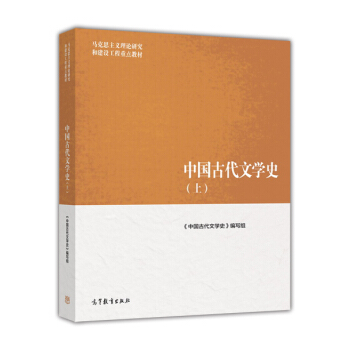
![企業管理學 [Enterprise Management] pdf epub mobi 電子書 下載](https://pic.tinynews.org/11910353/573300e3Ne6d746b6.jpg)
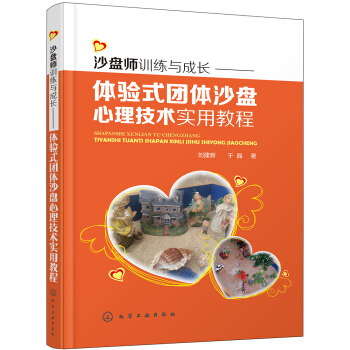
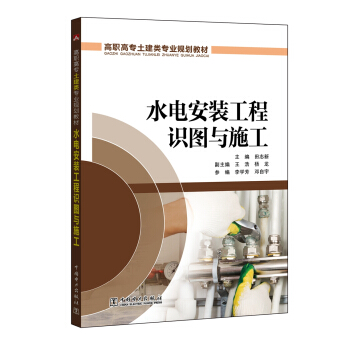

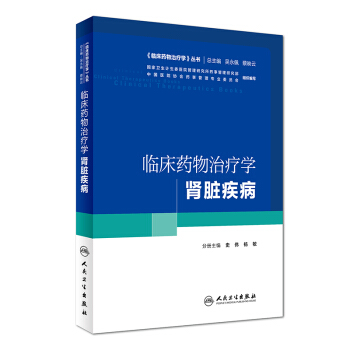
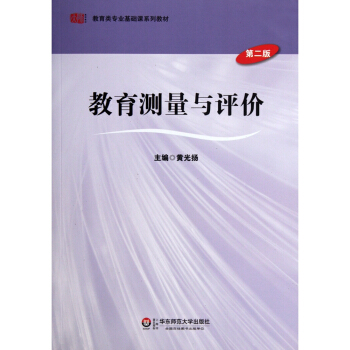
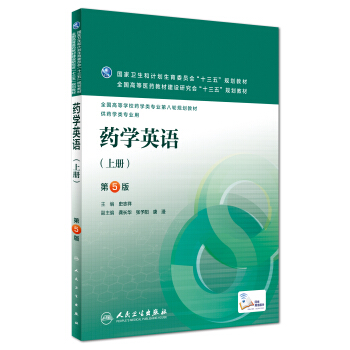
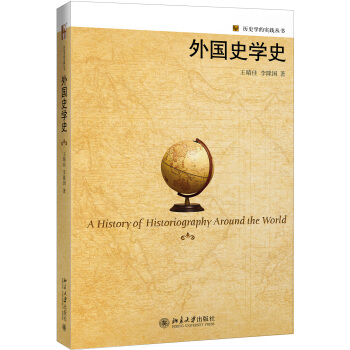
![教學係統設計(第2版) [Instruction System Design] pdf epub mobi 電子書 下載](https://pic.tinynews.org/12237637/5a8e56e0Ne36c2bfe.jpg)
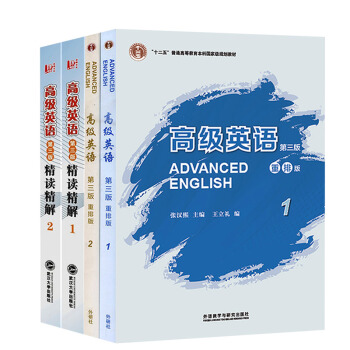
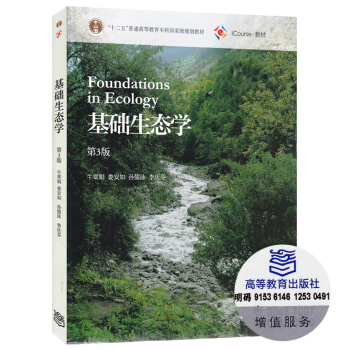
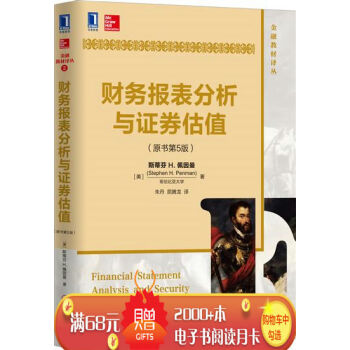
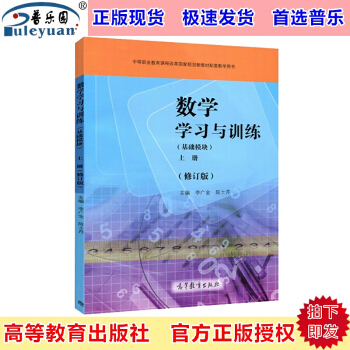
![[二手] 新視野大學英語讀寫教程1(第3版) pdf epub mobi 電子書 下載](https://pic.tinynews.org/16003258644/59a753e5Nc2bd5c2c.jpg)
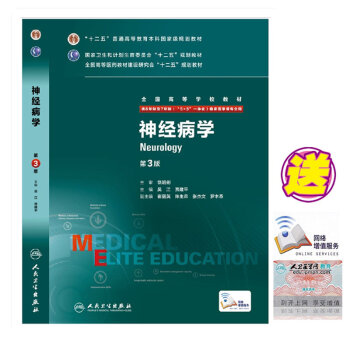
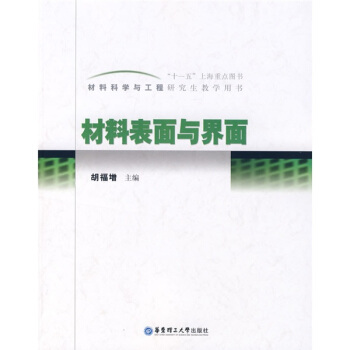
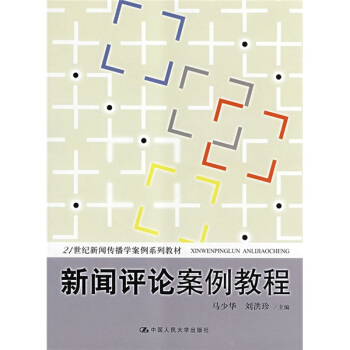

![醫學英文原版改編雙語教材:內科學(雙語版) [Textbook of medicine] pdf epub mobi 電子書 下載](https://pic.tinynews.org/10121770/a88757f0-8db5-4b30-980b-f9493c4c9453.jpg)